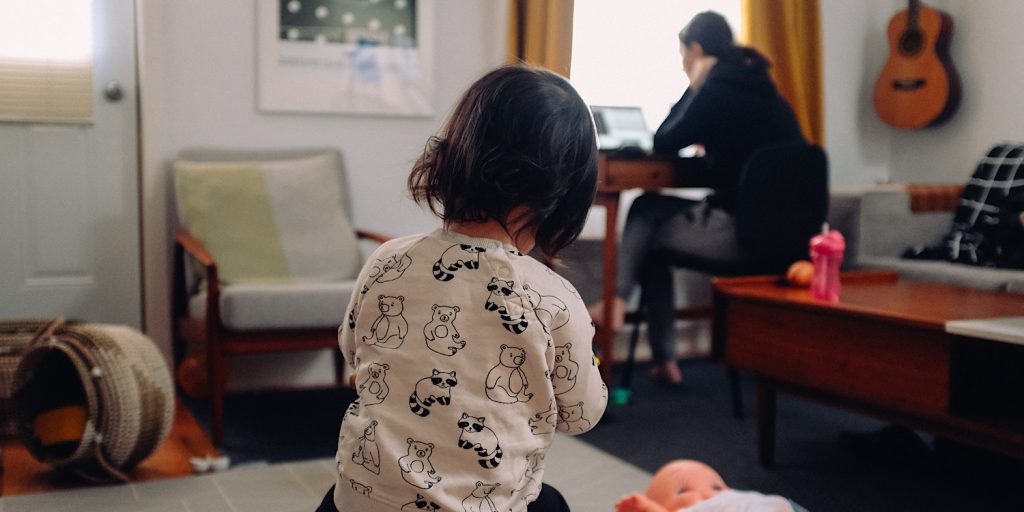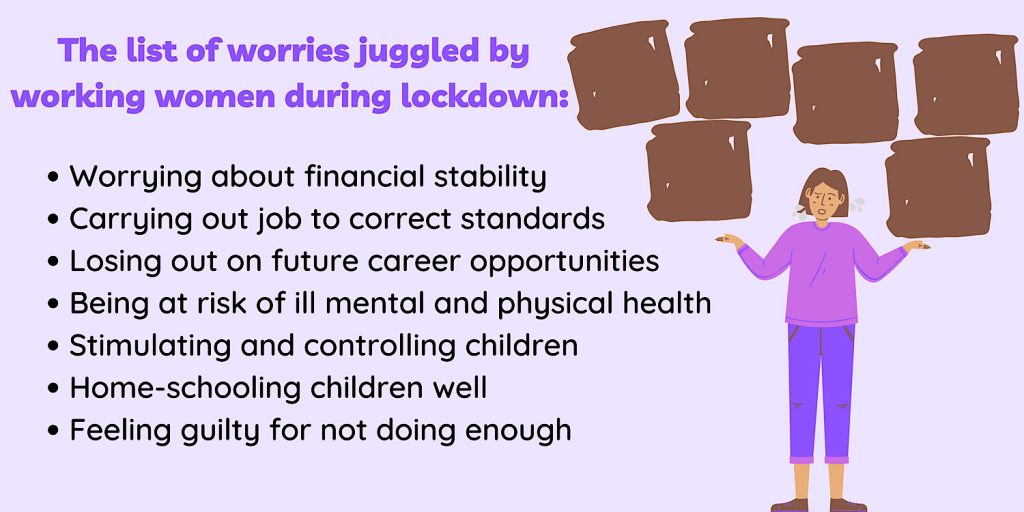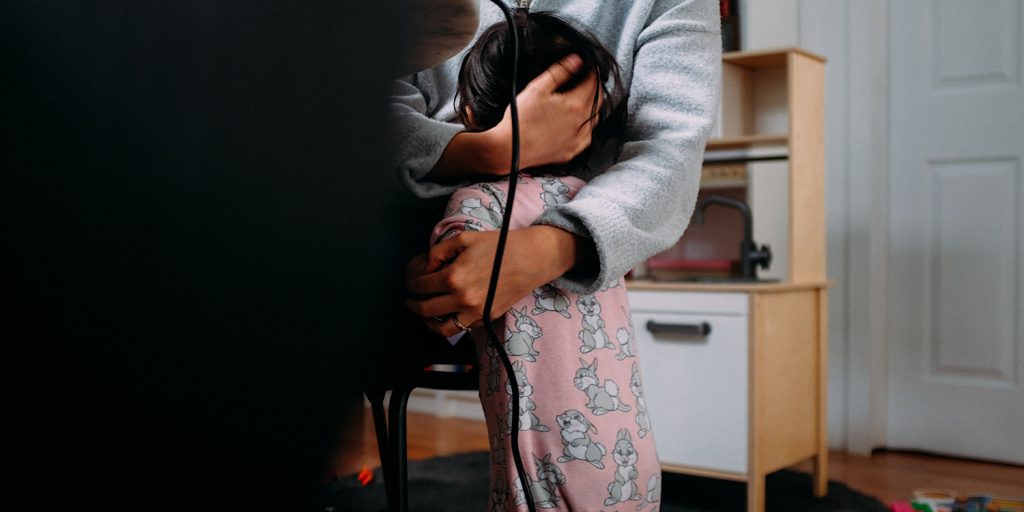Working from home has kept the economy alive during the pandemic, but officials worry about the impact on women’s positions within the workplace

Before the pandemic, the average workday was between seven and eight hours. When lockdown hit, workers were forced to stay at home. In theory, this meant working hours would decrease; with no commute, workers could do what they needed to do and log off as soon as they could.
But for working mothers, this was never the case. When lockdown ruled out external childcare the burden of responsibility fell to them, meaning their workday nearly doubled in length.
To aid economic recovery, the Welsh Government issued cautious advice to go back into work this autumn. But just because the economy is recovering, it doesn’t mean that working mothers are. In fact, for women with caregiving responsibilities, their position within the workplace remains uncertain causing many to ask the question: are women who work from home being left behind?
In a June 2021 survey conducted by Welsh gender equality charity Chwarae Teg, it concluded that lockdown forced more traditional roles upon women within the home, forcing them to juggle work and childcare commitments.

Cat Charlton, a mother of two and managing director of a self-assisted publishing company, struggled to keep control of her workload when freedoms limited external childcare.
“My only option was to work in the evenings as my husband had to prioritise his job. This meant incredibly long days and impacted negatively on my mental health and that of my husband,” she says.
Living in Cwmbran, the 31-year-old explained that if her job hadn’t offered flexibility, things would have been impossible.
Burden to bear
With the threat of the Omicron variant looming, society’s casual acceptance of a childcare system relying heavily on informal, unpaid care often delivered by women is worrying.
Among the 1,000 respondents to Chwarae Teg’s survey, 72% of working mothers worked fewer hours and cut their earnings due to a lack of childcare. Despite both partners having the same level jobs, it also found the overwhelming assumption that women would take on childcare responsibilities.
“My partner and I have similar level jobs and earn the same, but his work and meetings seem to have taken priority which causes resentment and arguments,” admitted a survey respondent.
My only option was to work in the evenings as my husband had to prioritise his job
Due to the high level of Covid-19 cases forcing school classes to quarantine, childcare duties are still a burden to bear for Cat. She hopes there will be more put in place to safeguard women’s careers if Wales enters another lockdown.
“A lot of mothers only go back into the workplace when they know they have time for a job as well. If this is taken away from them, it proves incredibly taxing,” she admits.
In a time where recovery is at the forefront, building back a fairer, more equal society has never been so important for gender equality in Wales.
Finding the balance
Tomos Evans, Chwarae Teg’s policy & public affairs partner, recognises the importance of this challenge. Explaining that the gender pay gap is expected to get worse this year, he says, “A lot of policy and decision makers talk as if the pandemic has happened, but we still won’t see the impacts for a very long time.”
Working with members of the Senedd, Tomos often reminds officials that Covid-19 guidance compels women to stay at home even after restrictions are lifted.
“If we don’t deal with the consequences of the pandemic in an equitable way, we’re going to find ourselves reinforcing many of the longstanding issues around women’s roles in the home in particular,” he says.

Against the odds
The office for national statistics found around two-thirds (67%) of working adults in Great Britain travelled to work between 3 and 14 November 2021.
However, Welsh Government data showed that on 12 November, 3,877 primary age children were off for a known Covid related reason. This figure nearly doubled on 29 November.
In a time where more people are going back into work, Cardiff-born Tomos believes that political awareness is key for women to get back on equal footing in the workplace. He says, “Although we think if working women are to progress we need to change cultural norms, working from home isn’t necessarily a silver bullet. It cannot be a one size fits all thing.”
Moving forward, he believes a hybrid model of open, agile working may be the best solution.
Genderblind
For these Welsh women, the effects of the pandemic will be felt long after the final dose of the vaccine.
Despite women being severely impacted by the pandemic, Chwarae Teg reported that UK government policies were repeatedly skewed towards men by ignoring the caring responsibilities faced by women.
“There must be a change of mindset and Welsh Government must lead by example,” the survey concluded.
In response, a Welsh Government spokesperson said, “While childcare services were restricted in the immediate response, our advancing gender equality in Wales plan sets out the practical steps needed to advance equality for women and girls.”
For working mothers, these plans can’t come soon enough. Without the aid of officials, a genderblind reliance on women at their working limit could become a pandemic in itself.
So, while we continue to see the effects of Covid-19 develop, work begins for those safeguarding working women. Then, and only then, can the workday finally return to normal hours, with the needs of caregivers – both men and women – being fairly accounted for.
